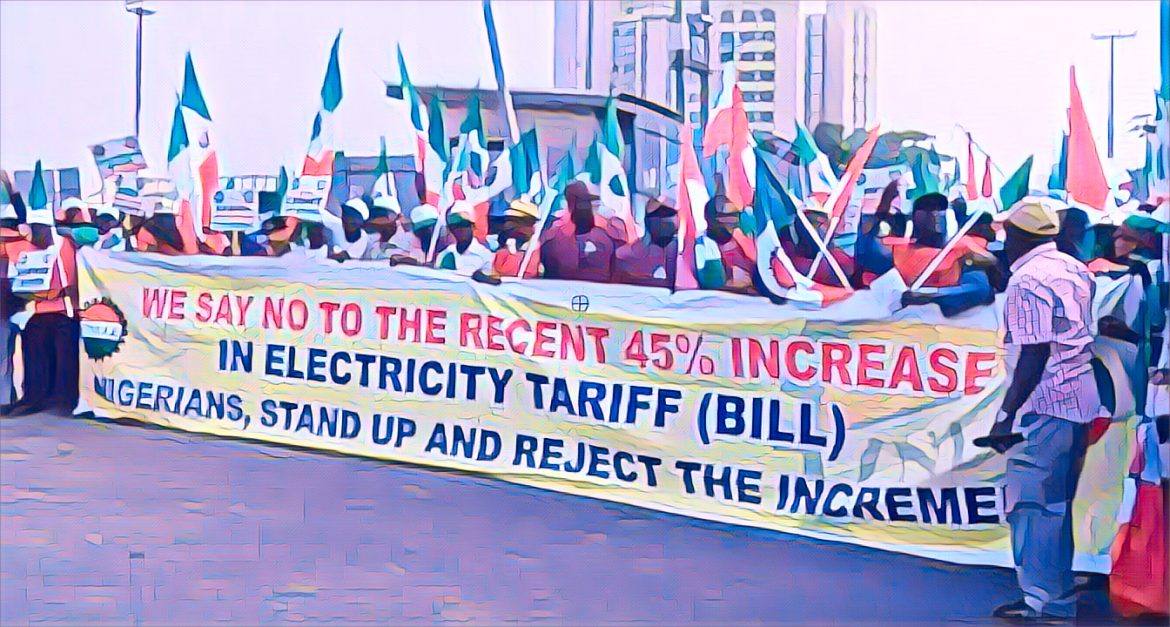In an effort to protest the recent increases in energy tariffs in the face of Nigeria’s economic challenges, the Nigeria Labour Council (NLC) and the Trade Union Congress (TUC) have launched a statewide shutdown of DisCo offices. The unions’ sudden move on Monday, which prevented workers from entering their workplaces early, marked a major turn-up in their opposition to the government’s program.
The nationwide demonstration is scheduled to begin on May 31. Organized labor initiated the action by sending reminder notices to its branches and affiliates nationwide. The main source of their complaint is the government’s recent move to increase energy prices, particularly the Band A tariff, and eliminate power industry subsidies, which they claim unfairly burdens consumers and disrupts economic stability.
Labor unions planned to close the Ministry of Power, state offices of the power distribution corporations, and the Nigeria Electricity Regulatory Commission (NERC) as part of their protest. The unions’ resolve to pressure the government to reevaluate its policies is demonstrated by the synchronized action.
NLC and TUC members demonstrated at the Ikeja Electricity Distribution Company’s corporate headquarters in Lagos, and their Oyo counterparts did the same at the Ibadan Electricity Distribution Company’s office. Because workers were unable to access their offices, the protests hindered regular business operations and essentially put an end to work.
These were not the only places where protests took place. Members of the NLC and TUC protested the NERC local offices in Jos, Plateau State, and blocked the entry to the Jos Electricity Distribution Company headquarters. The unions pledged to guarantee complete adherence to the national direction, according to NLC Plateau state leader Eugene Manji. “Not only this office, but all of them are under attack. To guarantee compliance in every office, members have been sent to different locations, according to Manji.
The surge in action is suggestive of a larger unhappiness with the tariff policies of the federal government, which many believe worsen the economic hardships that the average Nigerian faces. Concerns about service cost and fair access have been raised by customers and business leaders, who worry that the hikes could deepen inequality and increase the economic burden on already struggling households.
Disgruntled voices can also be heard among the employees of the impacted businesses. Workers at Jos Electricity Distribution expressed their annoyances; they wished to be nameless. A senior technician called the abrupt hike in rates a betrayal and criticized its suddenness. A customer care agent emphasized the excessive load on customers, and an administrative assistant expressed support for the union’s opposition to the tariff increases. A maintenance technician echoed these thoughts by pointing out the wider impact on the communities they serve, highlighting the significant effects of the tariff modifications.


